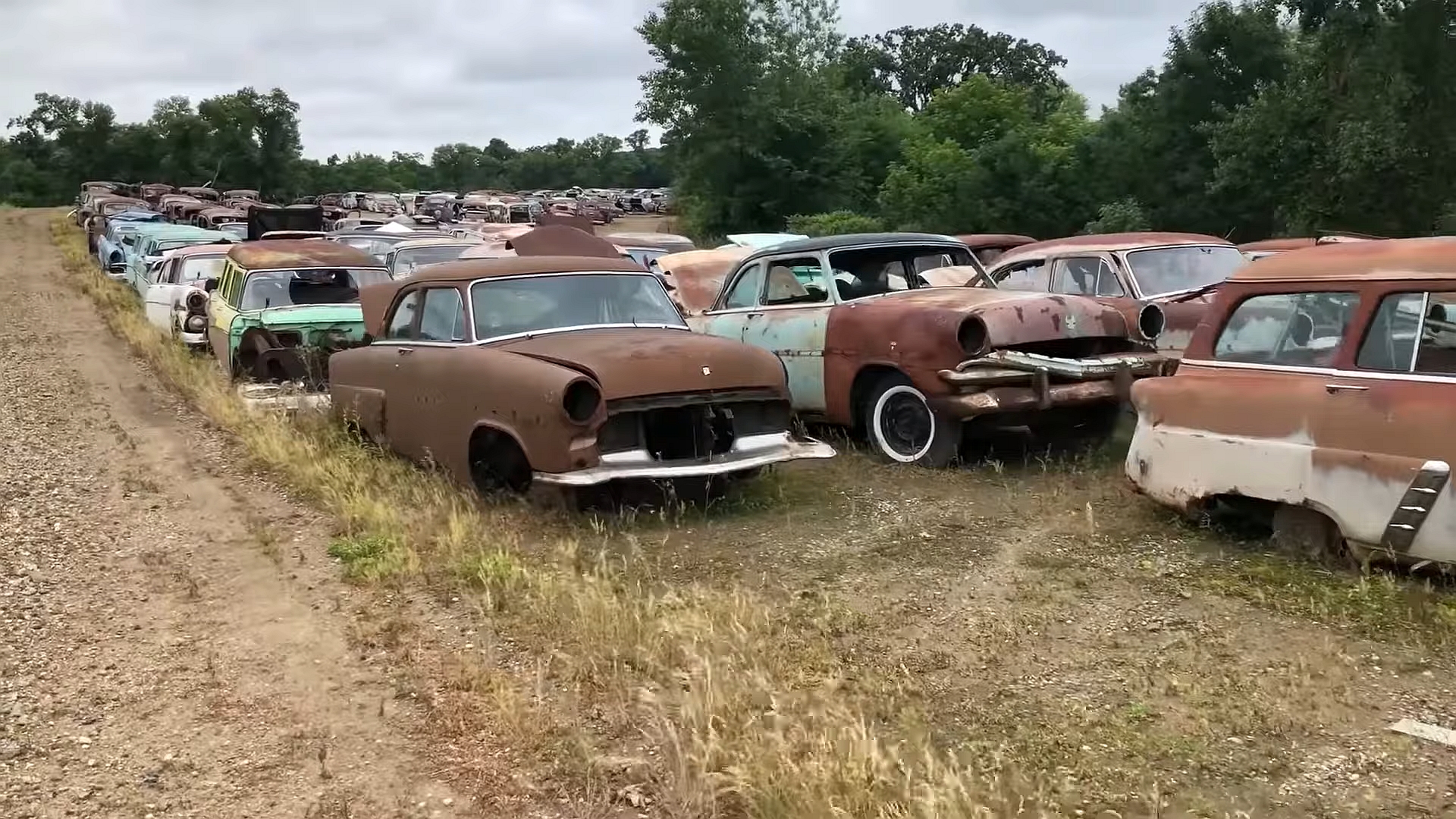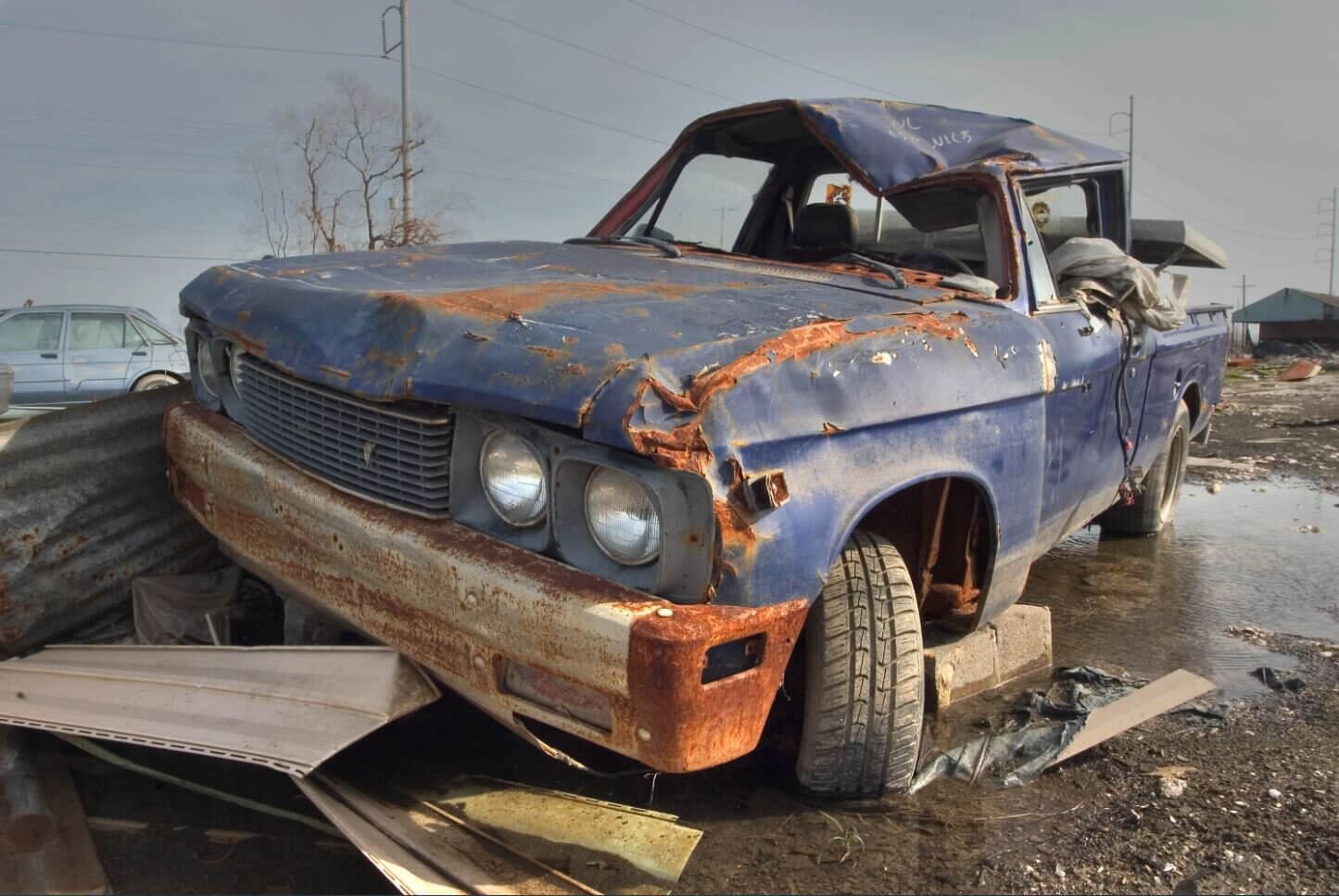The Environmental and financial Benefits of Recycling Scrap Cars And Trucks
Recycling scrap vehicles offers various financial and environmental advantages that prolong well beyond waste decrease. By recovering as much as 90% of car components, this technique significantly reduces land fill concern while protecting essential natural deposits. It cuts down on power use and greenhouse gas exhausts connected to raw product extraction and manufacturing. The process likewise creates job opportunity throughout numerous fields, from dismantling to logistics, and offers consumers with economical vehicle components. These advantages underscore the diverse value of recycling junk autos, yet there are further aspects to consider when examining its complete effect.
Decreasing Garbage Dump Waste
Decreasing landfill waste through the recycling of scrap autos plays a crucial function in environmental preservation. Effective recycling procedures can substantially reduce the quantity of waste that ends up in land fills when automobiles get to the end of their life cycle. Junk cars and trucks, if not correctly reused, add to the growing trouble of garbage dump overcapacity, intensifying ecological deterioration and potentially infecting soil and groundwater with hazardous materials such as oil, gas, and heavy steels.

Furthermore, the recycling procedure mitigates the negative impacts of auto waste on biodiversity. Landfills are well-known for interfering with local environments, and lowering the influx of scrap cars and trucks helps preserve natural environments. Inevitably, reusing scrap cars is a tactical technique that cultivates lasting waste monitoring, aligning with broader environmental goals.
Conserving Natural Resources
In addition to mitigating garbage dump overcapacity, reusing scrap automobiles plays a significant role in saving natural resources. The automobile market is heavily dependent on different metals, plastics, and various other products that require comprehensive mining and handling. By recycling junk cars, we considerably decrease the demand for basic materials, consequently curbing the environmental degradation connected with mining activities. For circumstances, recycling steel from old automobiles reduces the requirement for iron ore removal, which in turn reduces energy consumption and greenhouse gas exhausts.
In addition, the procedure of reusing vehicle components such as lead, copper, and light weight aluminum is much less energy-intensive than generating these materials from virgin sources. This energy savings converts directly into minimized nonrenewable fuel source consumption and reduced carbon footprints (cash for cars denver). Additionally, by redeeming and repurposing materials, we extend the lifecycle of non-renewable resources, guaranteeing they remain readily available for future use
Furthermore, reusing automobile liquids like transmission, antifreeze, and oil liquid prevents harmful materials from infecting soil and water resources. Through systematic reusing initiatives, these liquids can be cleansed and recycled, advertising a round economic climate and further decreasing the stress on natural deposits. Therefore, reusing scrap cars and trucks uses a multifaceted approach to saving our planet's invaluable natural possessions.
Developing Task Opportunities
The recycling of junk autos not just benefits the setting yet likewise stimulates economic development by creating job opportunities. This growing sector offers a large array of work potential customers, varying from the preliminary collection and transportation of old cars to the intricate processes of taking down, sorting, and repurposing the various elements.

The proliferation of recycling plants even more enhances the work market, demanding roles such as designers, maker drivers, and top quality control professionals to handle the advanced equipment and ensure compliance with environmental guidelines. Even management positions, such as sales, advertising, and customer support, see a surge as the sector broadens.
Lowering Production Prices
By incorporating recycled products from scrap automobiles, manufacturers can dramatically lower production prices. The utilization of recycled steel, light weight aluminum, and other beneficial steels reduces the need for resources extraction, which is both costly and energy-intensive. This not only preserves natural deposits but also converts into significant cost financial savings for auto makers. The energy required to process recycled products is substantially much less than that required to produce new materials from scratch. As a result, this reduction in energy intake directly correlates with decreased production expenditures.
Moreover, the reusing procedure helps streamline the supply chain by supplying a steady influx of products that are conveniently offered and typically less expensive than recently extracted resources. These price efficiencies are especially crucial in an extremely affordable market like automotive production, where margins can be razor-thin. In addition, the recycling of junk vehicles helps minimize the unstable pricing of basic materials, enabling makers to better projection and control their production budgets.
Providing Inexpensive Automobile Parts
When junk cars are recycled, the availability of cost effective vehicle parts substantially boosts, benefiting both consumers and service center. Recycled car components are typically offered at a fraction of the price of new components, offering a cost-efficient choice for lorry proprietors and technicians. This cost can be critical for people that may not have the economic ways to acquire brand-new parts, enabling them to keep their automobiles in functional and risk-free condition.
Repair stores additionally gain from this boosted accessibility of budget-friendly components. By sourcing recycled components, these organizations can reduce their operational prices, which can be passed on to clients with reduced solution costs. This, subsequently, can lead to greater customer complete satisfaction and commitment, as Fort collins we buy junk cars clients appreciate the price savings without jeopardizing on top quality.
Furthermore, the top quality of recycled parts has boosted considerably for many years, many thanks to developments in reusing processes and quality assurance actions. Numerous recycled parts go through strenuous testing to ensure they satisfy market standards, supplying integrity similar to repairs - scrap my car. By supplying a economically viable and high-grade alternative, the recycling of junk cars plays a crucial duty in sustaining both the auto fixing sector and the more comprehensive customer market
Final Thought
Recycling scrap automobiles offers considerable financial and ecological advantages by dramatically reducing land fill waste and saving natural sources. In general, the recycling of scrap cars supports both financial development and sustainability objectives.
Reusing scrap autos offers many financial and environmental advantages that extend well beyond waste decrease. Scrap autos, if not properly reused, add to the growing trouble of garbage dump overcapacity, exacerbating environmental destruction and possibly contaminating dirt and groundwater with dangerous substances such as oil, gas, and heavy metals.
By reusing junk automobiles, we substantially reduce the need for raw materials, consequently suppressing the environmental degradation linked with mining activities.When scrap vehicles are recycled, the schedule of affordable car components considerably increases, profiting both consumers and repair stores.Recycling scrap vehicles offers significant financial and ecological benefits by substantially minimizing landfill waste and preserving all-natural resources.